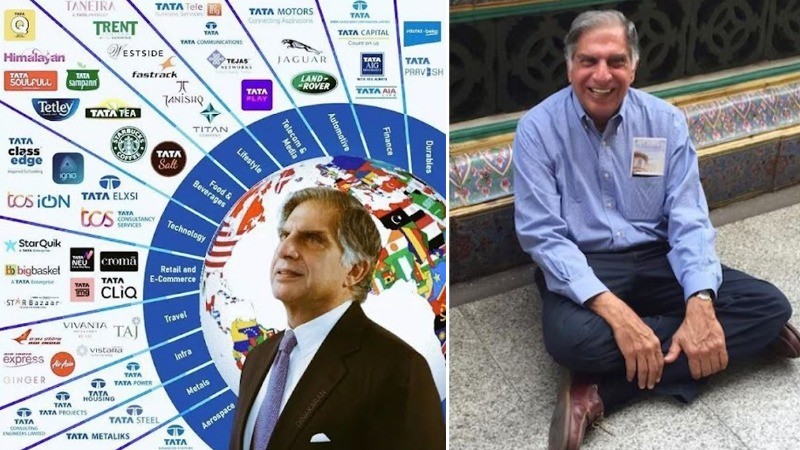
Ratan Naval Tata, a revered figure in the global industrial landscape, passed away on Wednesday night at a Mumbai hospital at the age of 86. Renowned for his decency and integrity, Tata was a corporate giant who never sought the spotlight or a spot on billionaire lists. He managed over 30 companies operating in more than 100 countries, yet lived a humble life, earning the affectionate title of a 'secular living saint.'
Tata's journey began after he earned a Bachelor of Science in architecture from Cornell University in 1962. He started at the Tata Group on the shop floor, gaining hands-on experience in various businesses. In 1971, he became the director of the National Radio and Electronics Co. His leadership skills were recognized, and in 1981, he ascended to chairman of Tata Industries. A decade later, he took over as chairman of the Tata Group, succeeding his uncle, J.R.D. Tata, who had led the company for over 50 years.
This transition occurred during a pivotal moment in Indian history, as the country opened its economy in 1991. Under Tata's leadership, the Tata Group evolved from its origins as a small textile and trading firm founded in 1868 into a global powerhouse. The conglomerate expanded its operations across diverse sectors, including salt, steel, automotive, software, power generation, and aviation.
Tata served as chairman of Tata Sons, the group's principal holding company, for over two decades. During this time, he spearheaded numerous acquisitions, such as the purchase of London-based Tetley Tea for $431.3 million in 2000, South Korea's Daewoo Motors' truck operations for $102 million in 2004, and Anglo-Dutch steel manufacturer Corus Group for $11.3 billion. Additionally, he acquired the prestigious British car brands Jaguar and Land Rover from Ford for $2.3 billion.
Beyond his business acumen, Tata was equally recognized for his philanthropic endeavors. His commitment to philanthropy began in the 1970s with the establishment of The Aga Khan Hospital and Medical College, which became one of India's leading healthcare institutions. After assuming the role of chairman at Tata Sons in 1991, he intensified his philanthropic efforts, steering the Tata Trusts, founded by his great-grandfather Jamsetji Tata, to address essential social issues and support educational initiatives across the country.
Despite his distinguished career, Tata faced some controversies. While the Tata Group was not directly involved in the 2008 telecom license allocation scam, leaked phone conversations revealed his discussions with lobbyist Nira Radia, leading to public scrutiny, although no wrongdoing was established.
In December 2012, Tata passed the reins of Tata Sons to Cyrus Mistry, his deputy at the time. However, Mistry's leadership faced challenges, resulting in his ousting in October 2016. Tata was among the shareholders who disagreed with Mistry on various projects, including the discontinuation of the Nano car, which was a personal project for Tata.
Following Mistry's departure, Tata briefly returned as interim chairman in October 2016, before retiring again in January 2017 when Natarajan Chandrasekaran took over as chairman of the Tata Group. Since then, he has held the title of emeritus chairman and focused on supporting young entrepreneurs, investing in technology-driven start-ups that are set to shape India's future.
Tata's love for animals was evident in his actions. On a rainy evening, he ordered that stray dogs outside Tata's headquarters in Mumbai be allowed shelter, showing his compassionate side. Though Tata has left us, his legacy continues to inspire countless individuals and businesses worldwide.